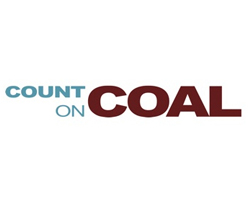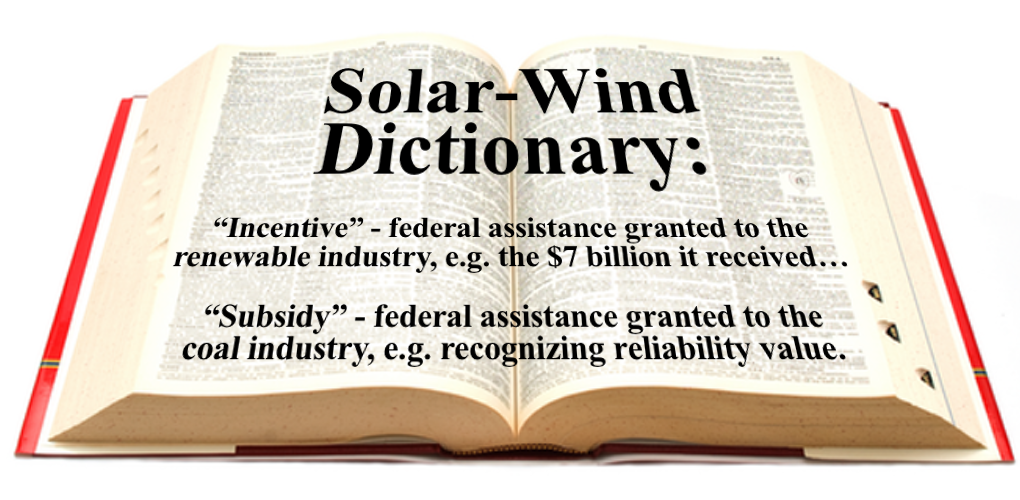
 






.gif)



|
Signature Sponsor


November 8, 2017 - Last week the renewable industry was busily excoriating Energy Secretary Perry’s NOPR for offering “subsidies” to coal when suddenly it had to defend subsidies – its own.
Renewable advocates were stirred to indignation after House tax writers proposed cuts to wind and solar largess that totaled $7.2 billion last year alone. Measures they had just denounced as “subsidies” for coal miraculously became “incentives” when applied to wind and solar.
Green lobbyists deployed the swamp’s full arsenal of overwrought clichés to attack the House tax bill. It would “pull the rug out” from workers. Congress “fails to honor” its “commitment” to continue subsidizing the industry. How? It “reneges on the tax reform deal” – the one that extended for five years wind and solar subsidies they don’t need. In swamp speak, removing a taxpayer subsidy is a “tax increase.”
Undaunted by this cruel betrayal, the industry’s Washington lobby assured its members it will “fight hard to see that wind energy continues to work for America.” Translation: we will fight hard to see that Americans continue to work for the wind industry.
Taxpayers are already making renewable energy among the most coddled industries in modern history. From 2016 to 2020, wind and solar will have received $41.2 billion to stay in business says the Institute for Energy Research [March 2017].
A new report by Lazard [“Levelized Cost of Energy Analysis” 2017] confirms that continued growth of renewable fuels is not assured by reduced technology costs alone. RPS requirements that mandate markets for wind and solar, carbon regulations that cripple fossil fuel competition, and government subsidies that juice the industry’s growth – these, says Lazard, keep renewable demand up and investors interested.
If handouts go away, so might investors – and the bullish capacity growth for wind and solar companies. This brings us back to the central issue underlying NOPR. A grid already losing on-site fuel storage could then become even less reliant during exceptional events.
Lazard’s report concludes that despite the advantage of government’s thumb on the scales, the renewable energy system “is not capable of meeting baseload generation needs of a developed economy for the foreseeable future.” The “optimal solution” for improving grid reliability, says the report, is to “maintain a diversified energy fleet.”
Sound advice.
|
 











|
